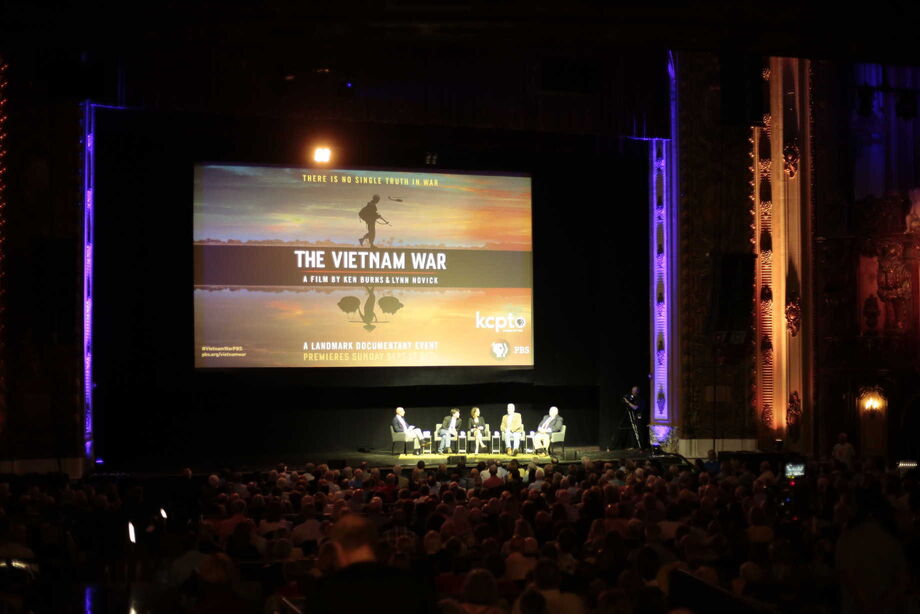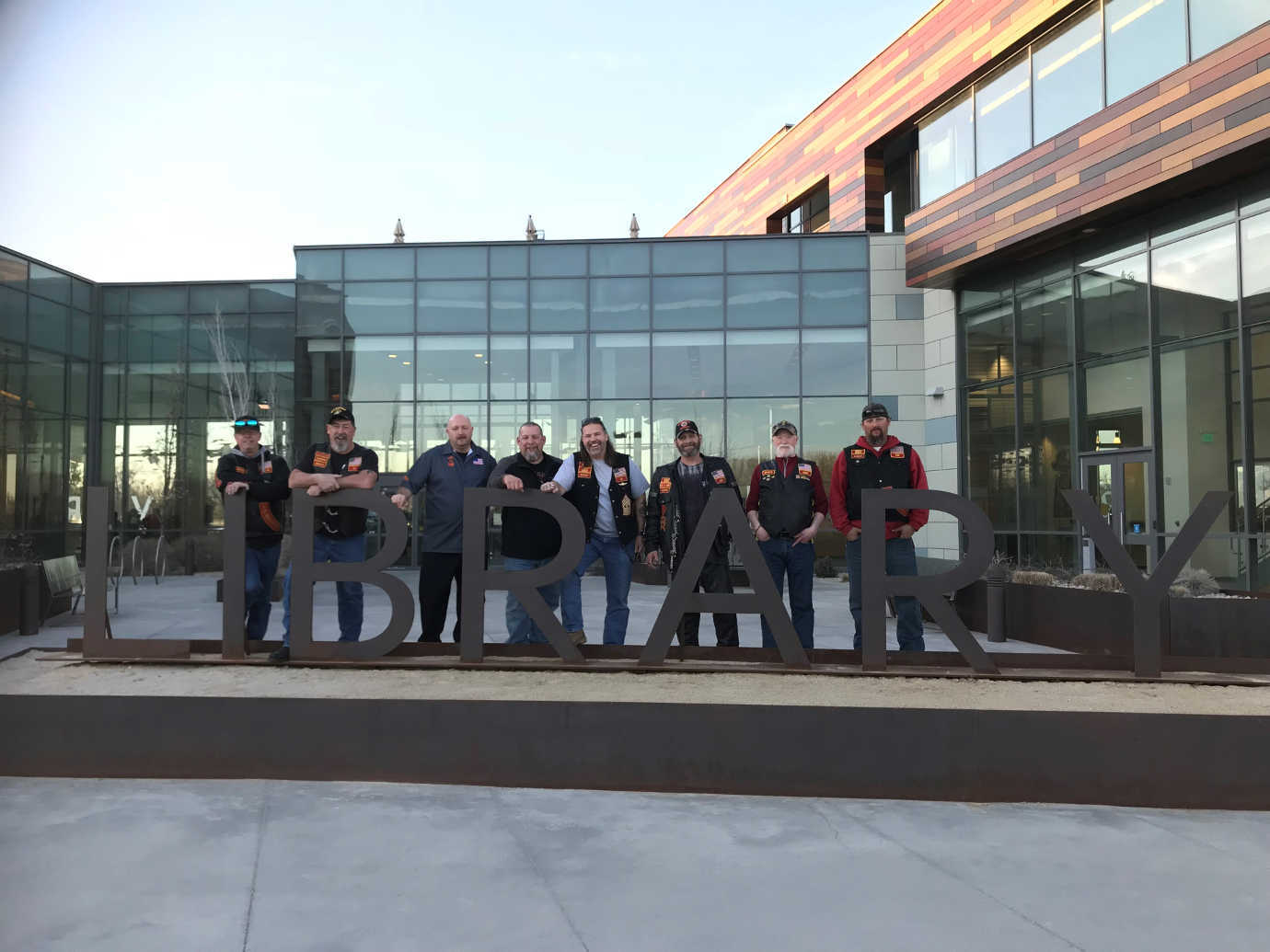
NEH funded events—hosted in towns across the nation—brought communities together to view and discuss The Vietnam War. Image courtesy of WETA.
Since 1970, NEH grants have helped WETA, the Greater Washington PBS affiliate, bring humanities programming to the nation. NEH funding for projects like Ken Burns’ The Civil War, Jeff Bieber’s Latino Americans, and Ken Burns and Lynn Novick’s Prohibition and The Vietnam War has ensured that high-quality documentaries interpreting the history of the United States are available in classrooms and homes throughout our nation. And NEH funding for expanded public engagement with The Vietnam War helped veterans and communities around the country access the ten-part documentary series and reflect on what the war meant for individual people and our nation.
